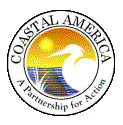
Project Name: Restoring a Sussex County Preserve through Invasive Plant Removal
Brief Description: With support from the New Jersey Corporate Wetlands Restoration Project, Conserve Wildlife Foundation (CWF) will partner with the New Jersey Natural Lands Trust (NJNLT) to restore vital wetlands habitat for the endangered bog turtle at a Sussex County site that also hosts the special concern Jefferson salamander. This Sussex County site hosts unique wetland ecosystems that provide habitat for a number of other threatened and endangered plants and animals, yet has been impacted by Phragmites and other invasive plant species that pose a threat to their long-term survival here. CWF biologists will cut Phragmites and apply herbicide on the cut reeds on approximately one acre of vital habitat within the site. CWF will utilize GIS mapping and/or a StoryMap to highlight the site’s impacted areas and various phases of treatment to showcase this pilot project to raise additional support for other invasive plant removals and habitat enhancement projects within Sussex County and beyond. Finally, CWF will partner with NJNLT for future monitoring and assessment during the following growing season to ensure effective and strategic long-term management.
Project Purpose: Invasive plants like Phragmites, reed canary grass, and purple loosestrife pose significant ecological threats to functioning freshwater wetlands in New Jersey, forming monocultures in the open wetlands, disrupting hydrology, and out-competing native plant communities that at-risk wildlife species like bog turtle, Jefferson salamander, and other reptile and amphibian species depend on. CWF, along with the New Jersey Department of Environmental Protection (NJDEP), has helped lead state field efforts to protect at-risk amphibians and key reptile species in the Garden State for the past 20 years through field surveys and protecting and restoring vital habitat. We seek to facilitate the removal of invasive, non-native plants at this Sussex County site to protect water quality and restore wetlands habitat for a number of endangered, threatened and special concern species (noted below). In addition to the site-specific work, CWF biologists will conduct related wetlands habitat restoration, water quality enhancement, reptile and amphibian field research, and volunteer stewardship at other key sites. Finally, CWF complements these field components with a public engagement and education campaign that will engage children and adults alike through public programs, water quality lessons, and vernal pool events. This supports the high-priority NJDEP initiative, Connecting Habitats Across New Jersey (CHANJ): https://www.njfishandwildlife.com/ensp/chanj.htm.
Resource Values: Highly sensitive to changes in their environments in sites like this one, New Jersey’s amphibians and reptiles serve as key biological indicators of a healthy ecosystem. They are extremely vulnerable to decline worldwide, with one-fifth of reptiles and one-third of amphibians endangered globally. This project will directly benefit the endangered bog turtle as well as a number of at-risk amphibian species, including Jefferson salamanders, spotted salamanders, and Atlantic Coast leopard frog. The public outreach fact sheets and guides will also highlight imperiled amphibian and reptile species such as the Eastern tiger salamander, eastern mud salamander, long-tailed salamander, southern gray treefrog, pine barrens treefrog, wood turtle, and spotted turtle.
Project Outputs and Metrics:
-
Aquatic habitat restoration for reptiles and amphibians through invasive vegetation species removal at this Sussex County site in Fall 2019 or Fall 2020.
-
Post-treatment monitoring and assessment of this site.
-
Engaging over 80 trained volunteers in invasive plant removal, field surveys, and related wildlife connectivity events.
-
Writing a report detailing the progress made in these programs in 2019 and 2020.
-
Creating an ESRI GIS StoryMap highlighting wildlife habitat restoration activities and New Jersey’s at-risk reptiles and amphibians, noting the support of NJCWRP.
-
Developing and promoting public outreach and engagement components centered on habitat enhancement and connectivity for reptiles and amphibians in New Jersey, including:
-
Updating species fact sheets for New Jersey reptiles and amphibians online and in print.
-
Hosting at least 5 wildlife and habitat volunteer training events.
-
Providing at least 6 public educational programs and/or events.
-
Cost: The total cost of the project is $48,531.60. CWF seeks $12,120 from CWRP to complete the work at this site and other key sites, while complementing this project with additional habitat restoration work, field surveys, wildlife crossing coordination, volunteer management, educational outreach, and training events. This would also include purchases of field equipment and supplies along with direct services such as designing and printing species fact sheets, updating and producing frog call CDs, and designing and creating GIS mapping and/or an ESRI GIS StoryMap. CWF will provide the additional $36,411.60 as cash and in-kind match from other agency, foundation and individual sources. Detailed budget is attached.
Schedule: September 2019-December 2020. CWF biologists will undertake the primary field work at this site in Fall 2019 or Fall 2020 to capitalize on the invasive plants resorbing nutrients for winter dormancy. As a result, the herbicide treatment will carry the herbicides into the roots for effective treatment. We will then revisit the site for monitoring during the following summer’s growing season to assess the treatment’s effectiveness and make recommendations for future management. CWF’s additional field studies and outreach at other sites will take place throughout the project period.
Permit Status: In place.
List of Partners: New Jersey Department of Environmental Protection’s Endangered and Nongame Species Program, New Jersey Natural Lands Trust, United States Fish and Wildlife Service, Natural Resources Conservation Service, Rutgers University, Montclair University, and Dr. Jeremy Feinberg of New York City Parks Natural Resource Group are the primary partners.
What is requested from CWRP: $12,120. Should we receive this funding, all of our related online and print materials will highlight CWRP’s generous support. In addition, we would invite CWRP to take part in any press events or communications campaigns.
Point of Contact: David Wheeler, 732-910-2063, david.wheeler@conservewildlifenj.org
Attachments: Detailed budget and support letters from Dr. Jeremy Feinberg and Mackenzie Hall, NJDEP




